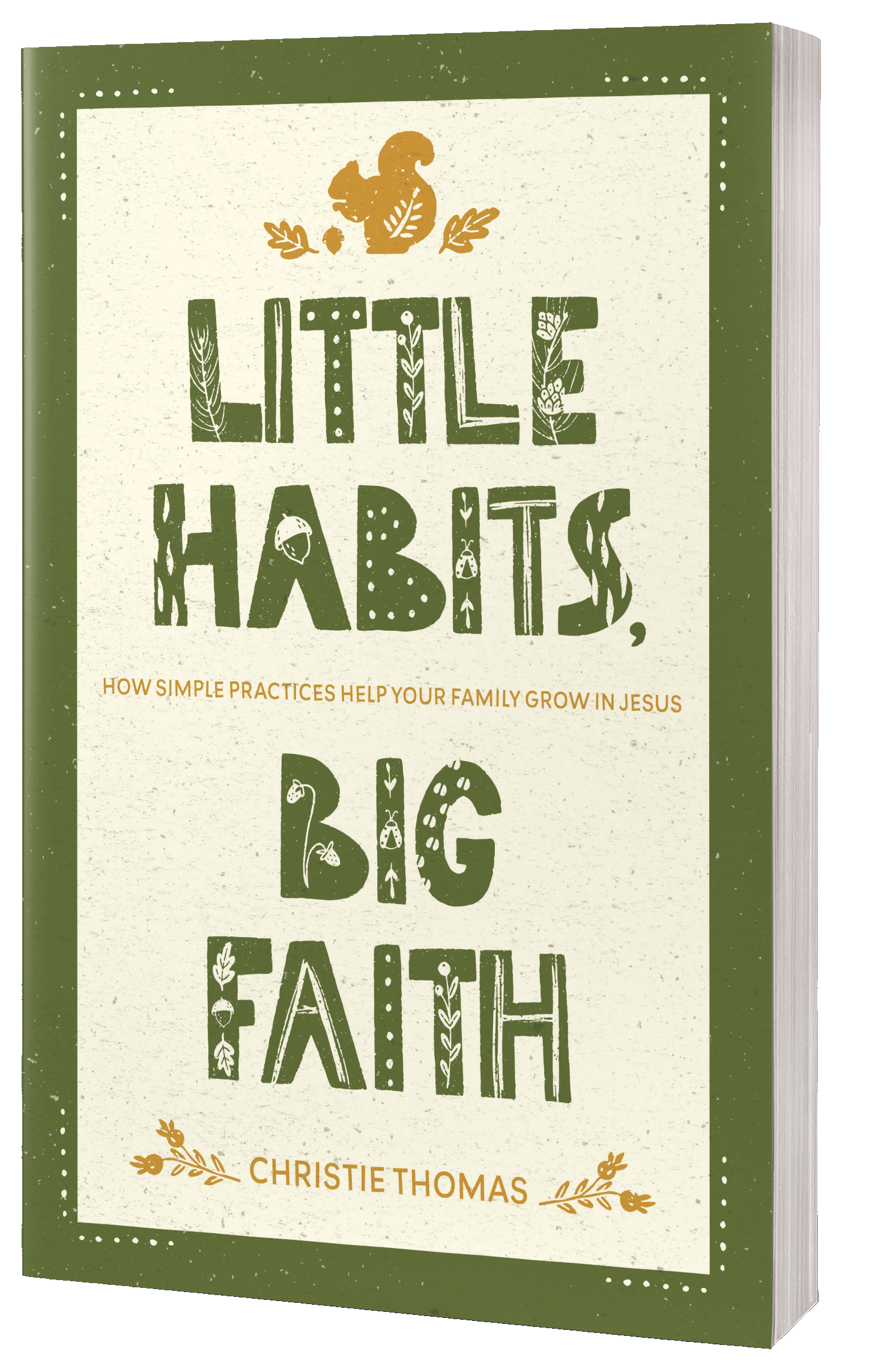Engaging God with all 5 senses can truly help our faith grow. Historically the evangelical church has shied away from using senses (aside from auditory), but perhaps there is something to be learned from more ancient traditions.
It comes every year: cinnamon-scented air, delicious desserts eaten without regrets, knitted sweaters snuggling our upper bodies in warmth, bright lights twinkling from eavestroughs, familiar songs being played in every building.
What did those sensory images just evoke in you?
- Joy?
- Warmth?
- Excitement?
I think the reason we love Christmas so much has something to do with the sensory experiences we enjoy every year, and that those sensory experiences have become traditions.
Worship through the senses
For the ancient Jews, the sense of smell was a key part of tradition of worship. The familiar scents evoked thoughts of God’s holiness, love and redemption. In fact, there was a very special incense blend that was only to be burned in the temple, and anyone replicating it for personal use would be excommunicated. ?
Clearly in God’s prescription for ancient worship he took seriously the 5 senses with which he created us.
Yet our evangelical churches typically shy away from using the senses as a way to connect with God. Perhaps it’s a fear of anything perceived as “new age”, perhaps it’s a form of gnosticism rearing it’s confusing head, perhaps it’s just because we don’t understand it.
There are some ways that we still do experience God through our senses – partaking of communion evokes our sense of taste, and music requires us to listen. But no longer do we install elaborate stained-glass windows or build soaring cathedrals with intricate artwork that bring us to our knees in awe of the God who inspired them. Our churches are mostly plain affairs, and we’ve banned scents in deference to those with allergies.
But there are people, who Gary Thomas refers to as Sensates, that crave this kind of connection with God.
The Sensate designation comes from his book “Sacred Pathways: Discover Your Soul’s Path to God” in which he talks about thinking beyond the “read my Bible and pray” faith that leaves a lot of people spiritually parched. Thomas helps us to think about other ways to connect with God, revealing the other ways God connected with people throughout the Bible and church history.
See Sacred Pathways on Amazon.
How do I know if I’m a Sensate?
Do you fall asleep while praying alone but come alive while laying hands on someone?
Do certain scents evoke strong memories?
Does beautiful art, whether visual or auditory cause you to stop and ponder God?
When I was younger I had a piano version of Pachelbel’s Canon that had this one chord progression, ending in one solitary chord, that brought tears to my eyes every time I played it. I don’t know exactly what it was about it, but I like to believe that I heard a little glimpse of heaven in that chord.
If so, you might be a sensate!
But how does a sensate discover God in a world where our senses so often lead us into narcissism and excess?
Engaging God with all 5 senses:
Experiencing God Through Smell

You may benefit from the use of certain essential oils when you pray. Lavender is both mild and calming – diffusing it or putting a drop on the forehead may help.
A “familiar smell can remind the worshiper of a time when worship may have been particularly rich. After the service, lingering scents remind the believer of the worship experience. After
Experiencing God Through Touch

Instead of sitting with our hands folded and our eyes closed while praying, we can use objects to help us concentrate.
For example, holding a jar of baby food may help you pray that your child would be healthy, and that their spiritual nourishment would come from God. Walking through your house and touching doorposts, beds, and the kitchen table would bring a very different, but meaningful prayer experience.
I have recently found it extremely helpful to use Protestant prayer beads to help me connect with God through prayer. You can read more about that here.
Experiencing God Through Taste

The Lord’s Supper is a worshipful experience where we primarily engage our sense of taste, but there’s also a lot to be said for conscious eating. For adults, check out “The Supper of the Lamb” for an example of using the sense of taste to draw closer to God. For something shorter, here’s a very interesting post about eating mindfully, written by my sister-in-law.
Experiencing God Through Sound

Music! Need I say more? Find music that inspires you to greater devotion to God.
It might not be modern worship music either – there is some incredible classical music that seems almost divine. Almost everyone has heard and experienced the awe that is evoked by Handel’s Hallelujah chorus, there are some incredible hymns written by Bach, and some of Beethoven’s chord progressions almost feel like heaven.
Experiencing God Through Sight

God loves beauty – he created it, and gave instructions that the tabernacle be gorgeous.
- Enjoy art! Look up Rembrandt’s works online, or go to a museum.
- When you encounter beautiful architecture, instead of looking at it critically, may its lines and symmetry (or lack thereof) bring you to awe of the God who created both.
BONUS: Experiencing God Through Proprioreception

Proprioreception is the sense of moving through space. When you close your eyes and swing your arm around, you can tell whether they’re up or down using your sense of prioprioreception.
Here is my suggestion for engaging with God through this sixth sense!
- Try dancing or creating art.
I didn’t realize that I enjoyed expressing my worship in this way until I was an
I also have a little book of prayer stances in my office that I sometimes use with kids, and can also be useful for adults. For example, laying prostrate on the floor lends to different prayers than standing with arms wide open. Learn more about helping your wiggly child learn to pray (without making her sit still).
Helping Children Engage God With All 5 Senses
Our children are most definitely sensory beings, yet we typically teach them to enter God’s presence in quietness and, quite frankly, with boredom.
Our devotions and prayers are usually spoken , and maybe include a visual, but I’m sure that most of us don’t include the senses of taste, touch, smell, and proprioreception (the sense of where our body is in space). Ideas for sensate children can be found on this post.






0 Comments